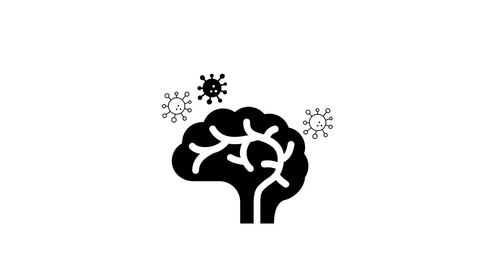from the brain and from the brain only arise our pleasures, joys, laughter, and jests as well as our sorrows, pains, griefs and tears...
Our Research
We aim to identify strategies to maintain memory and other cognitive abilities by identifying:
- Risk factors that increase the chance of cognitive disorders like Alzheimer’s disease
- Protective factors that build people’s resistance to cognitive decline (i.e., cognitive reserve) and increase the likelihood of healthy aging
Maintaining cognition throughout life is key to aging well
- Populations around the world are growing older
- Thus, age-related diseases such as Alzheimer’s disease will become more common
- Understanding factors that put people at risk of Alzheimer's disease provides the foundation for prevention initiatives
- Developing strategies to build cognitive resilience will substantially reduce the impact of Alzheimer’s disease on individuals, families, and society
- Our research will inform public health interventions and public policy targeted in early life to maximize health later in life
Learn more about our research projects.

News
Canadian Association on Gerontology 2023
Some exciting, up-and-coming presentations at this year's CAG Conference! See Emily Rutter and Carrie Shorey present at CAG's 52nd Annual Scientific and Educational Meeting in Toronto this October 27th. Times and details are available in the links.
Emily Rutter
Carrie Shorey
Research and Practice in Health Sciences Conference
Please join our graduate students from the School of Public Health Sciences present their research at the inaugural Research and Practice in Health Sciences Conference March 30th. Register here.
EpiCogAging students presenting lab projects:
Laura Lupoi (poster) “Do depressive symptoms mediate the association between perceived social support and executive function? A moderated mediation analysis in the CLSA”.
Emily Rutter (oral) "Perceived social support subtypes mediate the association between depressive symptoms and executive function in women aged 75 and over in the Canadian Longitudinal Study on Aging (CLSA)".
EpiCogAging student presenting external projects:
Michelle Vuong (poster) "The association between alcohol consumption and occurrence of sexual assault in Canadian university students: An exploratory study".
Lab Meeting
Join us for our next Lab Meeting on Wednesday, March 1st where we will discuss tips and tricks for Mind Mapping. Mind Maps are a useful visual tool for brainstorming, generating, and organizing ideas for research proposals.
Laura will give us a quick presentation on how to use Canva, a free-to-use online graphic design tool.
Also, with the Research and Practice in Health Sciences Conference on March 30th, we will discuss some guidelines and advice for designing posters and presentations. Emily and Carrie will share their past work to give a sense of what conference posters and presentations look like.



